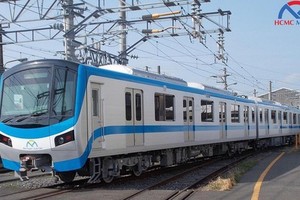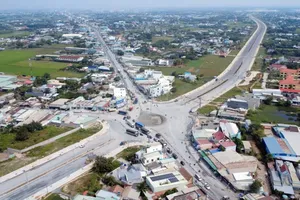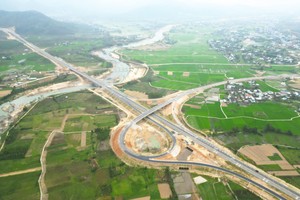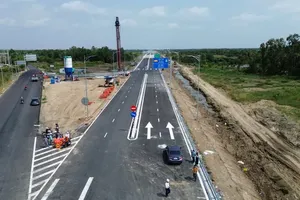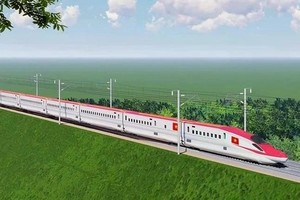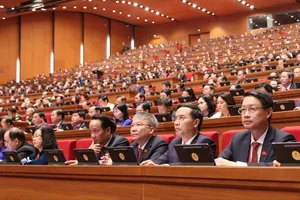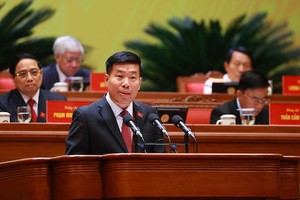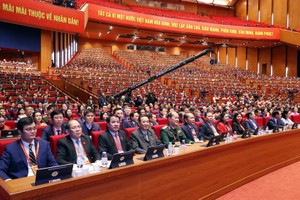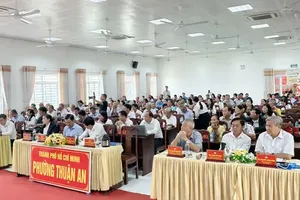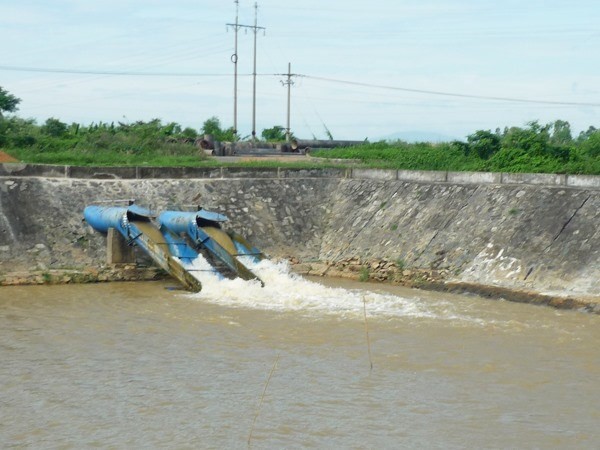
The city’s construction department made the announcement on November 15, stating that construction plans have been approved to commence from early 2019.
Vo Tan Ha, head of the department’s infrastructure board, said these water plants were designed to ease the shortage of water during the dry season due to high salinity at the Cau Do water plant – the city’s major water supply.
Ha said this year’s rainy season witnessed a serious lack of clean water in early November when the salinity in the Cau Do River rose alarmingly from 372mg per litre to 4,374mg per litre.
Meanwhile, water discharged from reservoirs of the two hydro-power plants A Vuong and Dak Mi 4 upstream could only reduce salinity slightly.
Ha said the Da Nang Water Supply company (DAWACO) has been operating its An Trạch pumping station 24 hours a day to dilute the water since early November, but the pumping station could only supply 70 percent capacity of Cau Do water plant.
“The Cau Do water plant lacks at least 70,000 cubic metres of clean water to supply the city’s water system, so water flow was slow and limited in Ngu Hanh Son, Son Tra and Lien Chieu districts,” Ha said, adding that households living at the end of the water system would have limited clean water for several days.
“The city also urged the two hydro-power plants to release more water downstream to improve the fresh water source for Da Nang,” he said.
Ha said the city also plans to upgrade its pipes and install more high-pressure pumps to speed up water flow to residential quarters.
According to the department, the Cau Do water plant would increase its capacity by 60,000 cubic metres each day in the first phase from March of 2019, before doubling by a further 60,000 cubic metres by 2020.
The department will upgrade the Hoa Trung water plant to supply 10,000 cubic metres of clean water each day by March 2019.
Ha said the city is seeking funds to construct Hoa Lien water plant with a designed capacity of 120,000 cubic metres each day in the first phase, and the plant will be operational in 2020.
General Director of Dawaco Ho Huong said the reduction of salinity in the Cau Do River was mainly due to the discharge from the two hydro-power plants and the salinity often increase when reservoirs lack water during this year’s rainy season.
Huong said the city should speed up construction of the Hoa Lien water plant to resolve the shortage of clean water in the city.
A source from the ministry of natural resources and environment said the central region saw low rainfall in the rainy season this year (between October and April).
Residents in seven districts of Da Nang have lacked clean water due to climate change, forest destruction, low rainfall and the operation of hydropower plants in the Vu Gia–Thu Bon river system covering Quang Nam and Da Nang.
According to Dawaco, the Cau Do water plant collects 200,000 cubic metres of water from the Cau Do River to provide clean water for the city’s population.
Meanwhile, reservoirs of hydropower plants, including Song Tranh 2; Dak Mi 4; Song Bung 4.5 and 6; and A Vuong, collect water from the rivers to generate power, thus restricting the water flow into the basin of the Cau Do River.
The ministry of natural resources and environment has asked the upstream hydropower plants to adjust waster released from reservoirs to ease the water shortage in Da Nang.
)
